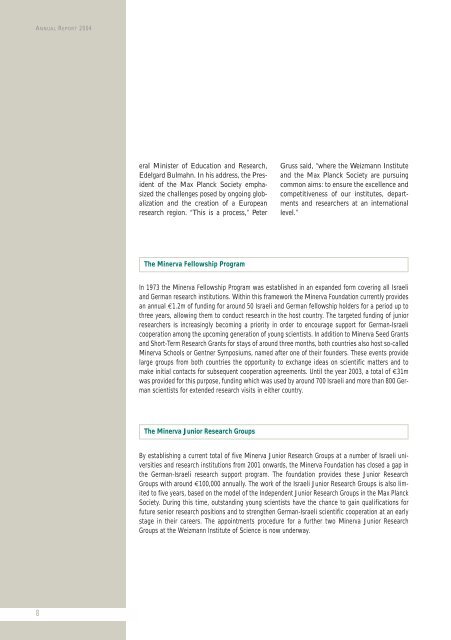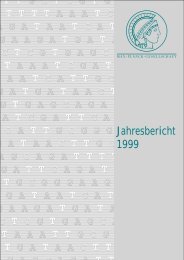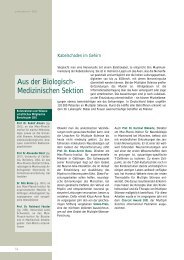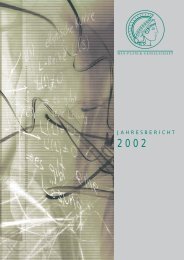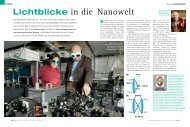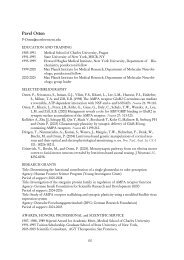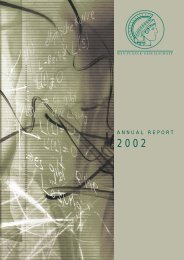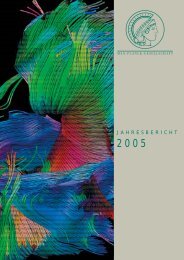Annual Report 2004 - Profil - Max-Planck-Gesellschaft
Annual Report 2004 - Profil - Max-Planck-Gesellschaft
Annual Report 2004 - Profil - Max-Planck-Gesellschaft
You also want an ePaper? Increase the reach of your titles
YUMPU automatically turns print PDFs into web optimized ePapers that Google loves.
A NNUAL R EPORT <strong>2004</strong>eral Minister of Education and Research,Edelgard Bulmahn. In his address, the Presidentof the <strong>Max</strong> <strong>Planck</strong> Society emphasizedthe challenges posed by ongoing globalizationand the creation of a Europeanresearch region. “This is a process,” PeterGruss said, “where the Weizmann Instituteand the <strong>Max</strong> <strong>Planck</strong> Society are pursuingcommon aims: to ensure the excellence andcompetitiveness of our institutes, departmentsand researchers at an internationallevel.”The Minerva Fellowship ProgramIn 1973 the Minerva Fellowship Program was established in an expanded form covering all Israeliand German research institutions. Within this framework the Minerva Foundation currently providesan annual €1.2m of funding for around 50 Israeli and German fellowship holders for a period up tothree years, allowing them to conduct research in the host country. The targeted funding of juniorresearchers is increasingly becoming a priority in order to encourage support for German-Israelicooperation among the upcoming generation of young scientists. In addition to Minerva Seed Grantsand Short-Term Research Grants for stays of around three months, both countries also host so-calledMinerva Schools or Gentner Symposiums, named after one of their founders. These events providelarge groups from both countries the opportunity to exchange ideas on scientific matters and tomake initial contacts for subsequent cooperation agreements. Until the year 2003, a total of €31mwas provided for this purpose, funding which was used by around 700 Israeli and more than 800 Germanscientists for extended research visits in either country.The Minerva Junior Research GroupsBy establishing a current total of five Minerva Junior Research Groups at a number of Israeli universitiesand research institutions from 2001 onwards, the Minerva Foundation has closed a gap inthe German-Israeli research support program. The foundation provides these Junior ResearchGroups with around €100,000 annually. The work of the Israeli Junior Research Groups is also limitedto five years, based on the model of the Independent Junior Research Groups in the <strong>Max</strong> <strong>Planck</strong>Society. During this time, outstanding young scientists have the chance to gain qualifications forfuture senior research positions and to strengthen German-Israeli scientific cooperation at an earlystage in their careers. The appointments procedure for a further two Minerva Junior ResearchGroups at the Weizmann Institute of Science is now underway.8


